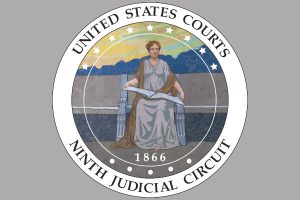9th Circuit Upholds Lower Court Rulings in Kink/Insurer Cases
 SAN FRANCISO – In an unpublished opinion issued Thursday, a panel of judges from the U.S. Court of Appeals for the Ninth Circuit upheld two lower court rulings in two cases involving Armory Studios, LLC, the operators of Kink.com, and Atain Specialty Insurance Company, which provides insurance coverage to Armory.
SAN FRANCISO – In an unpublished opinion issued Thursday, a panel of judges from the U.S. Court of Appeals for the Ninth Circuit upheld two lower court rulings in two cases involving Armory Studios, LLC, the operators of Kink.com, and Atain Specialty Insurance Company, which provides insurance coverage to Armory.
A district court previously held that Atain did not have a “duty to defend” Armory and the company’s principal, Peter Ackworth, in state court lawsuits in which plaintiffs allege they were harmed during Armory shoots, due to a “Physical-Sexual Abuse Exclusion” clause in the terms of the policy under which Armory is covered.
At the same time, the appellate court also upheld the district court’s ruling that Atain “is not entitled to reimbursement of a settlement paid in one of those underlying lawsuits, Adams v. Kink.com, et al.”
In its memorandum issued Thursday, the court concluded that the district court “did not err when it determined that Atain had no duty to defend Armory or Acworth in the underlying lawsuits.”
“Under California law, an insurer must defend its insured against a third-party lawsuit if there is a ‘bare possibility of coverage,’” the court wrote. “Therefore, we compare ‘the allegations of the complaint with the terms of the policy’ and determine whether the facts alleged together with the facts known to the insurer at the inception of a lawsuit or tender of defense reveal a possibility that the claim is covered.”
The court noted that Atain’s Physical-Sexual Abuse Exclusion “precludes coverage of ‘any occurrence, suit… or causes of action arising out of or resulting from the physical abuse, sexual abuse or licentious, immoral or sexual behavior intended to lead to, or culminating in any sexual act, whether caused by, or at the instigation of, or at the direction of, or omission by: The insured or the insured’s employees.’”
The court held that the exclusion applies in this case “because the state court complaints asserted that Armory and Acworth were liable for the plaintiffs’ contraction of HIV while plaintiffs were engaging in sexual acts at the direction of Armory and Acworth, among others.”
The court further held that the policy’s omissions clause also “precludes causes of action arising out of any sexual act that resulted from the omission of the insured, which covers the complaint allegations that Armory and Acworth failed to discover dangerous conditions caused by their tenants and failed to ensure their tenants were following required procedures. Thus, Atain had no duty to defend against any causes of action.”
As for the other issue and case, the Ninth Circuit panel concluded that Atain is not entitled to reimbursement of the settlement in the Adams case because it failed to satisfy a three-prong requirement established under the case Blue Ridge Ins. Co. v. Jacobsen.
“To be entitled to reimbursement Atain must show that it satisfied each of the following requirements: ‘(1) a timely and express reservation of rights; (2) an express notification to the insureds of the insurer’s intent to accept a proposed settlement offer; and (3) an express offer to the insureds that they may assume their own defense when the insurer and insureds disagree whether to accept the proposed settlement.’”
The appellate panel found that Atain did not satisfy the third prong of the test because “it never made an express offer to Armory that it could assume its own defense. Therefore, Atain is not entitled to reimbursement of the Adams action settlement.”
The Ninth Circuit panel that issued the ruling consisted of judges Richard C. Tallman, Kenneth K. Lee and Eugene E. Siler, a judge from the U.S. Court of Appeals for the Sixth Circuit who was sitting on this case by designation.












